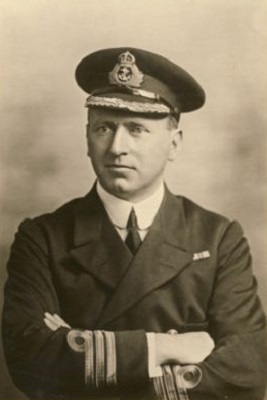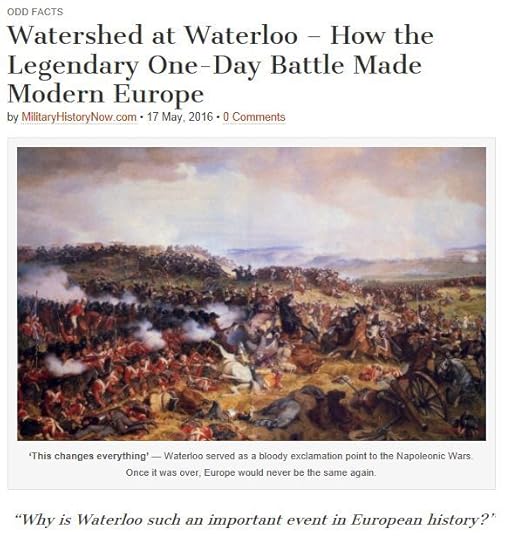Mark Simner's Blog, page 5
November 11, 2016
Outrage at Maizar: The Great Pathan Rising Begins
Following the annexation of the Punjab in 1849, the British inherited the problem of the North West Frontier of India. For many years prior to the defeat of the Sikhs, the Pathan (or Pashtun) tribesmen had proved to be a persistent headache, raiding into Punjab territory or robbing local merchants. For decades after, the British would conduct punitive operations against the various tribes in response to transgressions they were perceived to have committed. Most such campaigns were minor, and...
October 28, 2016
The Death of a Prince: Louis Napoléon and the Tragedy of the Zulu War
Ask anyone with a little knowledge of Victorian British military or colonial history about the Zulu War of 1879 and you will likely receive replies that talk of the heroic defence of Rorke’s Drift or the disaster at Isandlwana. However, at the time there was another tragedy of the war that caused great consternation in both Britain and France. This was the death of Louis Napoléon, the Prince Imperial of France, at the hands of Zulu warriors, and the subsequent destruction of the reputation of...
September 4, 2016
Interview with Amarpal Singh, author and historian of military history
Recently I spoke with fellow author and historian Amarpal Singh. This is what he had to say about his fascinating work:

Amarpal Singh
Tell us a little about yourself and your background?
Hi Mark, I’m 53 years old and live in London with Mandeep, my partner and two sons. I came to the UK when I was 6 years old so I’ve spent most of life in this country. We lived in Gravesend, Kent for quite a while but I have lived in the London area ever since my college days. By trade I’m a Computer Software...
July 21, 2016
Major-General Nevill Smyth VC
On 2 September 1898, Captain Nevill Maskelyne Smyth of the 2nd Dragoon Guards would perform an act of valour that would result in the award of a Victoria Cross. His citation, published in the London Gazette of 15 November 1898, read:
‘At the Battle of Khartum [Omdurman] on the 2nd September, 1898, Captain Smyth galloped forward and attacked an Arab who had run amok among some Camp Followers. Captain Smyth received the Arab’s charge, and killed him, being wounded with a spear in the arm in so...
June 30, 2016
For Valour: A First-Day Battle of the Somme VC
Temporary-Major Stewart Walter Loudoun-Shand of the Yorkshire Regiment was one of nine men to receive the Victoria Cross – Britain’s highest award for valour ‘in the face of the enemy’ – on the first-day of the Battle of the Somme, fought from 1 July to 18 November 1916. Of those nine, only three would survive that fateful day; Loudoun-Shand, however, was not to be one of the lucky ones.
Born in Ceylon on 8 October 1879, Loudoun-Shand was the son of a plantation owner and one of ten children....
June 1, 2016
A Jutland Victoria Cross: Commander Loftus Jones R.N.
A total of four Victoria Crosses were awarded for the Battle of Jutland, fought near Denmark on 31 May-1 June 1916. Several of them are well-known, including those to Jack Cornwell of HMS Chester and Francis Harvey of the Royal Marine Light Infantry. However, few today are aware of Commander Loftus Jones and his actions that led to the posthumous award of Britain’s highest award for valour ‘in the face of the enemy’.

Commander Loftus William Jones VC
Born on 13 November 1879, Loftus Jones was...
May 31, 2016
Battle of Jutland: The Commanders
The Battle of Jutland, fought 100 years ago between the British Grand Fleet and the German High Seas Fleet, was the largest and most important naval engagement of the First World War. Although it ended somewhat indecisively, it was perhaps a victory for Britain, since Germany had failed in its objective of breaking the dominance of the Royal Navy and its persistent blockade of German ports. Much has been written about the action, but who were the principal commanders that held the fate of the...
May 29, 2016
She Fought at Jutland: HMS Caroline
As the 100th anniversary of the Battle of Jutland – fought on 31 May-1 June 1916 – approaches, Britain has begun to remember those sailors who were present at the action, and in particular those who perished during the fighting. The battle – referred to by the Germans as Skagerrakschlacht, or Battle of Skagerrak – was the largest naval engagement of the war, fought between the Grand Fleet of the British Royal Navy and High Seas Fleet of the Imperial German Navy. There are, of course, no human...
May 18, 2016
New Article on MilitaryHistoryNow.com | Watershed at Waterloo by Mark Simner
April 25, 2016
New Facebook Author Page for Mark Simner
For those of you who use Facebook, please do take a look at and like my new official author page at https://www.facebook.com/marksimnerauthor/
Here you will find the latestinformation regarding my current and forthcoming books, as well asother works on British military history.





